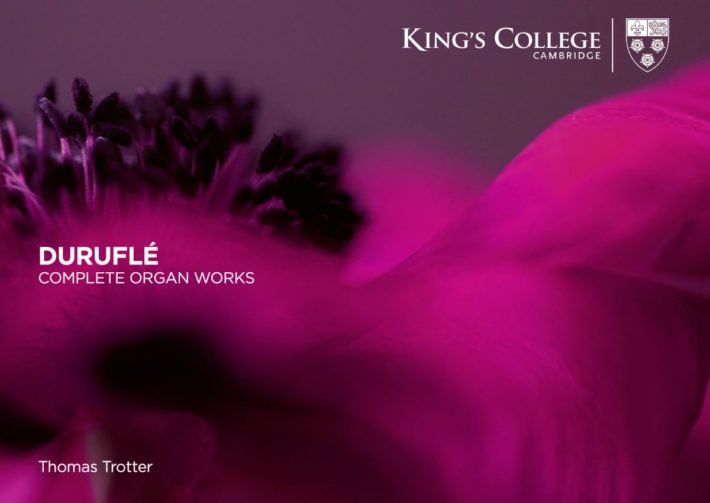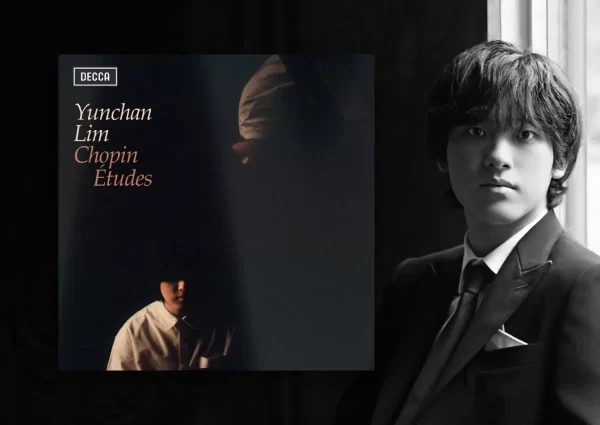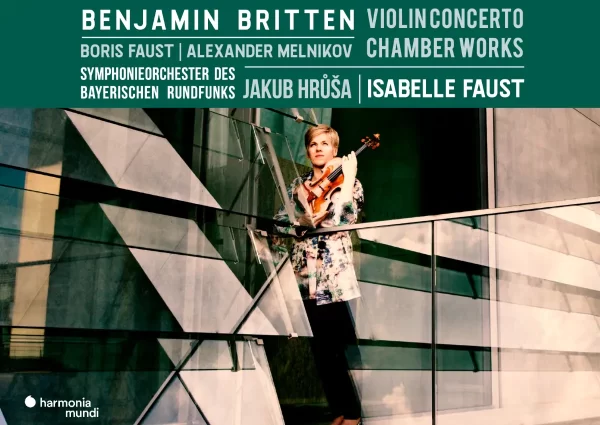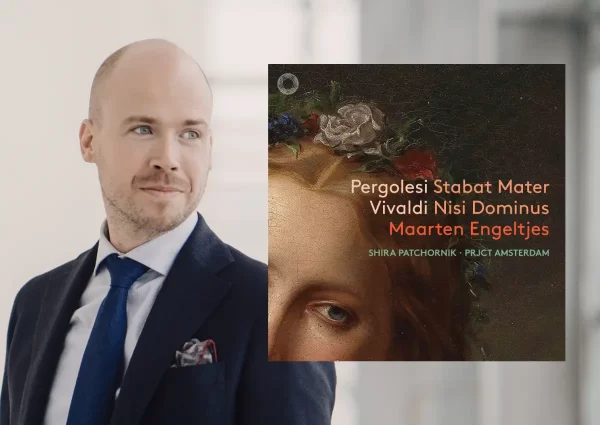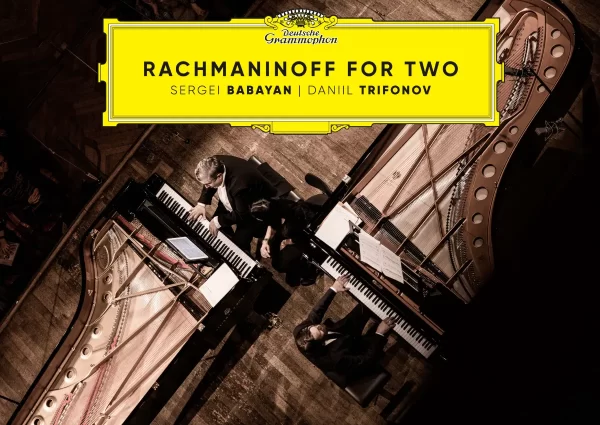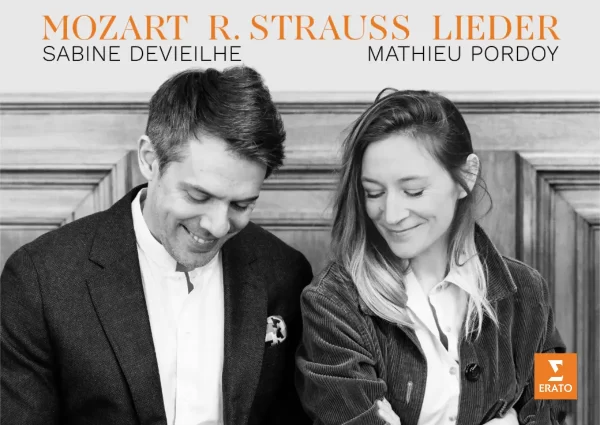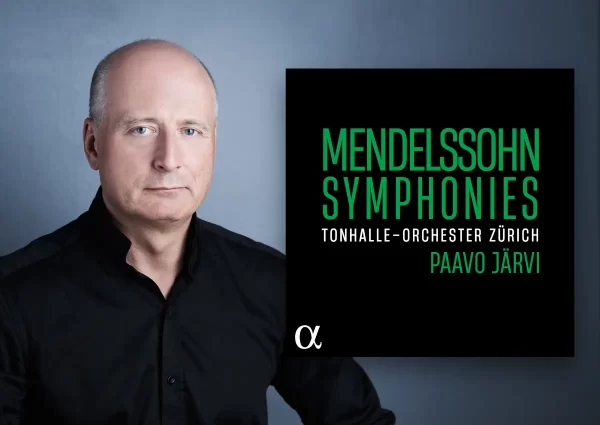This new self-produced King’s College album is the first to showcase the Harrison & Harrison organ since its major restoration in 2016. The instrument has never sounded better, especially as heard here in Benjamin Sheen’s impressively engineered recording. Trotter’s registrations ensure we hear a wide selection of the instrument’s solo stops, as well as its weighty opulence at full cry. David Gammie’s liner notes are a model of their kind, engaging, thorough and exceptionally informative.
The recital begins with an outstanding performance of “Fugue sur le thème du Carillon des Heures de la Cathédrale de Soissons.” Written to commemorate the 25th anniversary of Louis Vierne’s death, the writing is a testament to Duruflé’s contrapuntal mastery. The reading gradually increases in volume and intensity without sacrificing any textural clarity, climaxing with five powerful tutti chords. “Meditation,” only discovered and published several years after the composer’s death, is shaped with an improvisatory freedom that fully conjures the music’s mysticism.
Trotter dispatches “Scherzo” (track 5) with nimble grace, his registrations highlighting the organ’s brighter flutes and diapasons. His reading has a greater sense of fantasy and playfulness that performances by John Scott (Hyperion) and an especially serious Henry Fairs (Naxos). That same sense of fantasy and flexibility is also heard in “Prélude sur l’Introït de l’Épiphanie,” clearly revealing its origins in Gregorian chant.
Related Classical Music Reviews
- Review: “Bach to the Future” – Olivier Latry, Organ
- Review: Bach – Complete Keyboard Edition Vol.3 – Benjamin Alard
- Review: Franck – Piano Solo Pieces, Piano Quintet – Michel Dalberto
The three major works, Prélude et Fugue sur le nom d’Alain (tracks 3 & 4), Prélude, Adagio, et Choral varié sur le Veni Creator (7-9) and Suite (11-13) are played with immaculate technique and touching musicality. The passage quoting Alain’s Litanies (track 3, 5’09”) is touchingly done, and the build-up to the climax at the end of the Veni Creator variation (track 9, 4’51”) is absolutely thrilling. There is a tangible sense of foreboding throughout the Suite’s first movement (Durufle’s writing at its most impressive), and the final Toccata is played with great elan, although the music arguably needs the wilder, edge of your seat playing heard in performances by Sakari (BIS) and especially Latry (on a hard-to-find BNL Production).
A thoroughly recommendable album then. But it is important to acknowledge that the King’s College organ has a substantially different tonal palette and power than the instruments Duruflé played. The organs of Aristide Cavaillé-Coll are found in just about every major Parisian church, including Saint-Étienne-du-Mont, where Duruflé was Titular Organist from 1929 until his death in 1986. Cavaillé-Coll organs feature strong contrasts of tone color, and their reeds have a dominating brilliance that is quite unlike anything heard on this recording. It is like hearing a Mozart symphony played on modern instruments versus instruments of Mozart’s time. Today’s instruments have a more homogenous sound compared to instruments of Mozart’s time. Make no mistake, this fabulous music is both technically and emotionally thrilling on any large organ. Nevertheless, there is something uniquely awe-inspiring about hearing this repertoire played on a Cavaillé-Coll organ.
This new album is warmly recommended to anyone wanting Durufle’s complete organ oeuvre. Trotter’s performances are excellent in every way. But supplemental recordings (featuring Cavaillé-Coll instruments) should be considered. Joseph Nolan’s Midnight at St. Etienne du Mont (Signum) includes a fabulous performance of the “Suite,” as does Petur Sakari’s recording mentioned above. Naxos has two recordings of the “Prelude et fugue sur le nom d’Alain” recorded on Cavaillé-Coll organs, the finer of which is played by Eric Lebrun and comes coupled with fine performances of the Requiem and four motets.

Duruflé: Complete Organ Works
Thomas Trotter – Organ
King’s College, Cambridge, CD KGS0053
Recommended Comparisons
Read more classical music reviews or visit The Classic Review Amazon store
Follow Us and Comment:
Get our periodic classical music newsletter with our recent reviews, news and beginners guides.
We respect your privacy.

